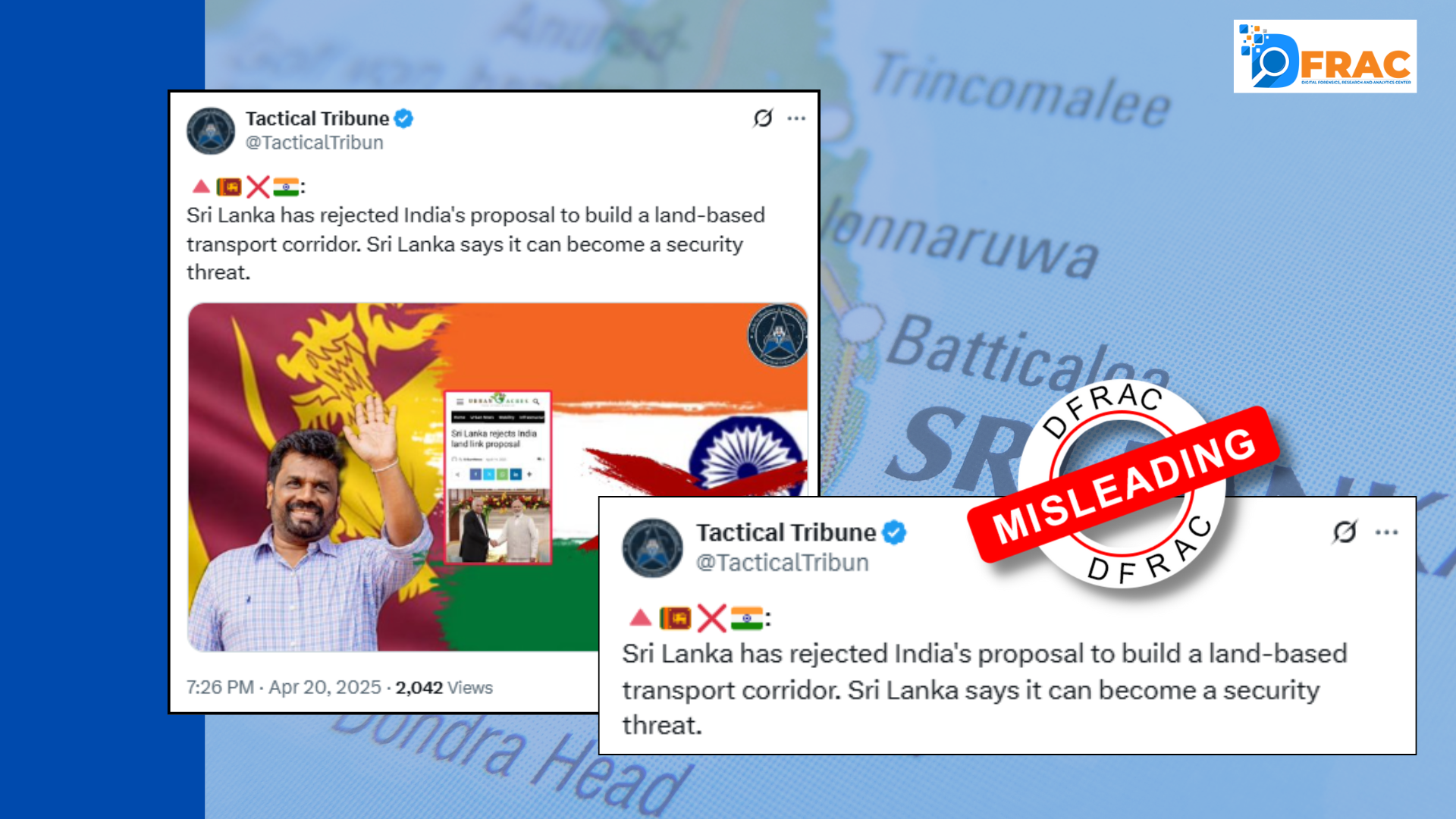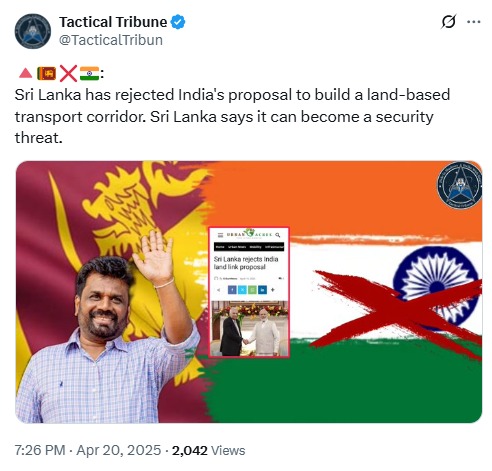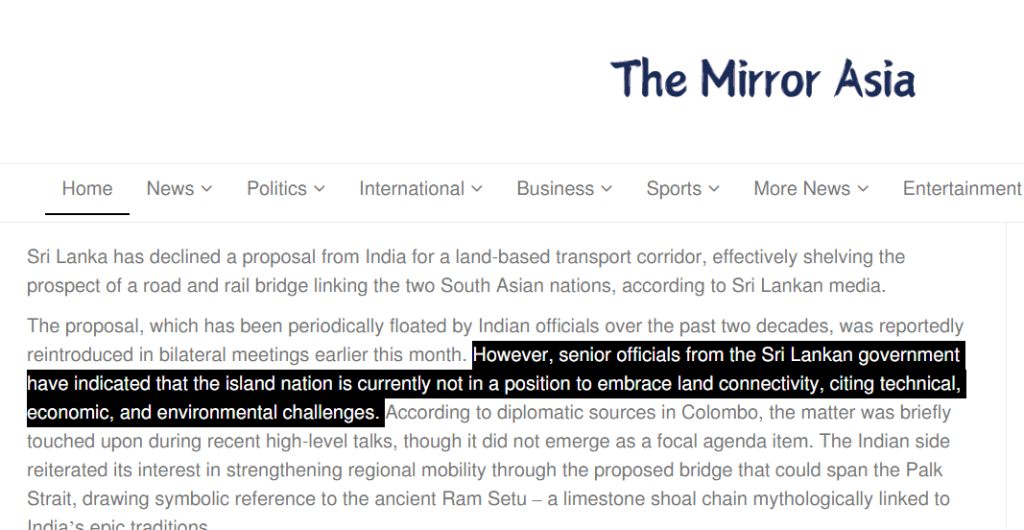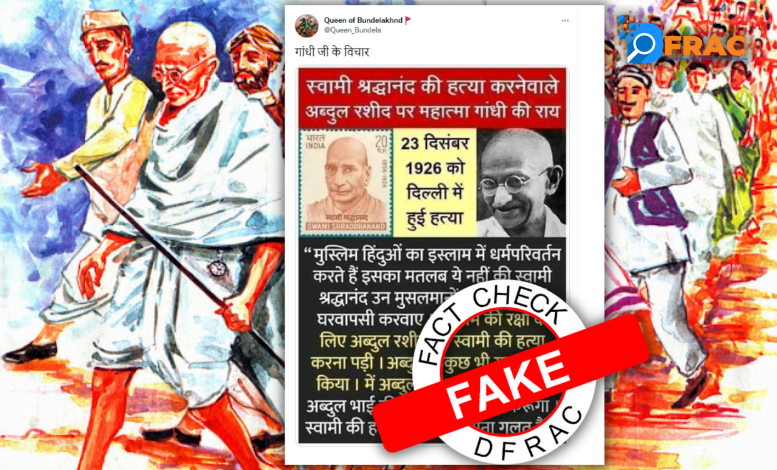Pakistan-based accounts have shared a claim about India—Sri Lanka relations. An account named Tactical Tribune claims that Sri Lanka has rejected India’s proposal to build a land‑based transport corridor. Sri Lanka says it can become a security threat.
Fact Check
Upon investigation, DFRAC found the claim to be misleading. During the investigation, we found the media report by UNI dated 18 April, which stated, Sri Lanka has turned down India’s proposal for the construction of a land connectivity project linking the two countries via road and rail-bridge, stating that it was not yet ready for land connectivity, a media report said.
The proposal was raised by Prime Minister Narendra Modi in his meeting with Sri Lankan President Anura Kumar Dissanayake, when the two met in Colombo earlier this month, the Daily Mirror reported.

The Daily Excelsior (18 April, 2025) likewise reported that Sri Lanka “has declined India’s proposal for the construction of a land connectivity project, stating that it was not yet ready for land connectivity.
The Daily Mirror’s coverage confirmed that Sri Lanka “has declined to consider a land connectivity project with India at this hour,” again citing readiness and feasibility concerns.
The Mirror Asia (20 April 2025) also noted that senior officials from the Sri Lankan government have indicated that the island nation is currently not in a position to embrace land connectivity, citing technical, economic, and environmental challenges.
None of the official statements from Sri Lankan authorities or state-run media describe the proposed land corridor as a “security threat.” Instead, Sri Lanka’s decision to reject the project has been attributed to concerns related to technical feasibility, environmental impact, economic implications, and national sovereignty. These considerations, rather than security fears, were cited as the primary reasons for not moving forward with the land-based connectivity proposal.
In December 2024, Times of India reported that President Anura Kumara Dissanayake explicitly pledged during an official visit to New Delhi that Sri Lanka “would not permit its territory to be used against India’s security interests.”
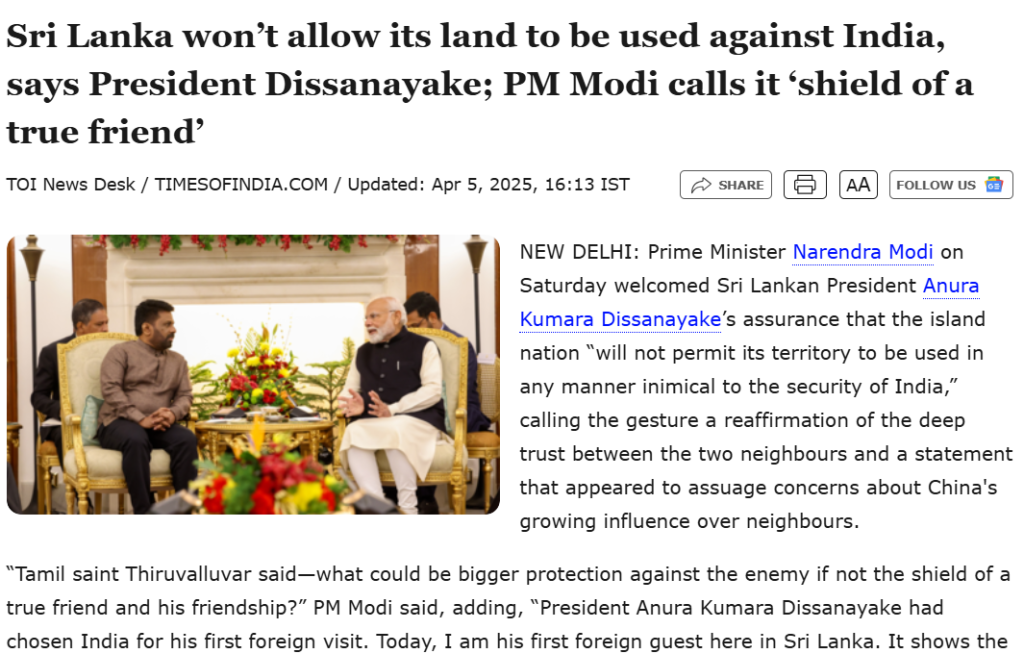
Conclusion
While Sri Lanka declined India’s proposal for a land-based transport corridor across the Palk Strait, the decision was not driven by security concerns. Instead, the Sri Lankan government cited reasons such as lack of preparedness, technical feasibility, and environmental considerations. No official source described the corridor as a “security threat.” Sri Lanka’s leadership has consistently reaffirmed its commitment to maintaining positive relations with India, assuring that its territory will not be used in any way that could compromise India’s security interests.
Thus, the viral claim is misleading.


